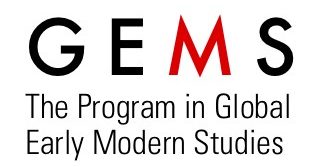Erasmus, Luther, and More after 500 Years. A Proposed Special Issue of _Reformation_
Please consider the following Call for Papers. Reformation, a bi-annual peer-reviewed journal in Reformation studies, publishes scholarship in all areas of Reformation culture, including Reformation history and historiography of all varieties; sixteenth- and seventeenth-century theological and biblical studies; Reformation, Tudor, and early modern literary studies; art history; the history of the book; and more. Its website is here.
Erasmus, Luther, and More after 500 Years
A Proposed Special Issue of Reformation
2016 and 2017 will witness three landmark quincentenaries in Renaissance and Reformation studies. One is the publication of Desiderius Erasmus’s Novum Instrumentum (1516). The first widely distributed Latin translation of the New Testament in a millennium, it also incorporated a facing-page edition of the Greek New Testament that afforded a point of departure for vernacular New Testaments in German (tr. Martin Luther, 1522), French (tr. Jacques Lefèvre d’Étaples, 1523), Dutch (printed Jacob van Liesvelt, 1526), and English (tr. William Tyndale, 1526). These years also mark the quincentenary of the publication of Thomas More’s Utopia (1516), a humanist dialogue of remarkable ambiguity and penetrating social commentary. By employing the classical dialogue form, More followed his friend Erasmus, whose own Encomium Moriae (In Praise of Folly) (first printed 1511) revitalized the classical encomium in a wide-ranging satire directed against perceived religious and political abuses. It joins his Adagia, his Enchiridion militis christiani his edition of Lorenzo Valla’s notes on the New Testament, his edition of St. Jerome’s letters, and his Colloquies as among the most influential printed works of the Northern Renaissance.
Martin Luther’s posting of 95 Theses on the door of the Schlosskirche in Wittenberg is traditionally dated to October 1517 and represents the third upcoming quincentenary. Luther produced his Contra Henricum Regem Angliae (1522) in response to Henry VIII’s Assertio Septem Sacramentorum (1521), a work published in the king’s name but actually written by More and others. More responded in his Responsio ad Lutherum (1523), his first important religious polemic. After igniting debate Luther was excommunicated by Pope Leo X in the 1520 bull Exsurge Domine and became subject to further controversies. Not least of these is his use of the biblical exile of the Hebrews to Babylon, in De captivitate babylonica ecclesiae (1520), as a metaphor for the fate of a “true” and “invisible” Protestant Church during years of perceived Roman Catholic apostasy.
Reformation hopes to publish a special issue to commemorate these books and events. Contributions are invited on any aspect of Erasmus, Luther, and More, including their place within humanist religious and scholarly thought; their theology and creativity; their political commitments; the reading and subsequent editing of their works; their influence upon their contemporaries; and more. Essays of about 9,000 words should be submitted to Dr. Mark Rankin, Editor, at [email protected]. The submission deadline is 1 January 2017 for publication in the Fall 2017 issue.



